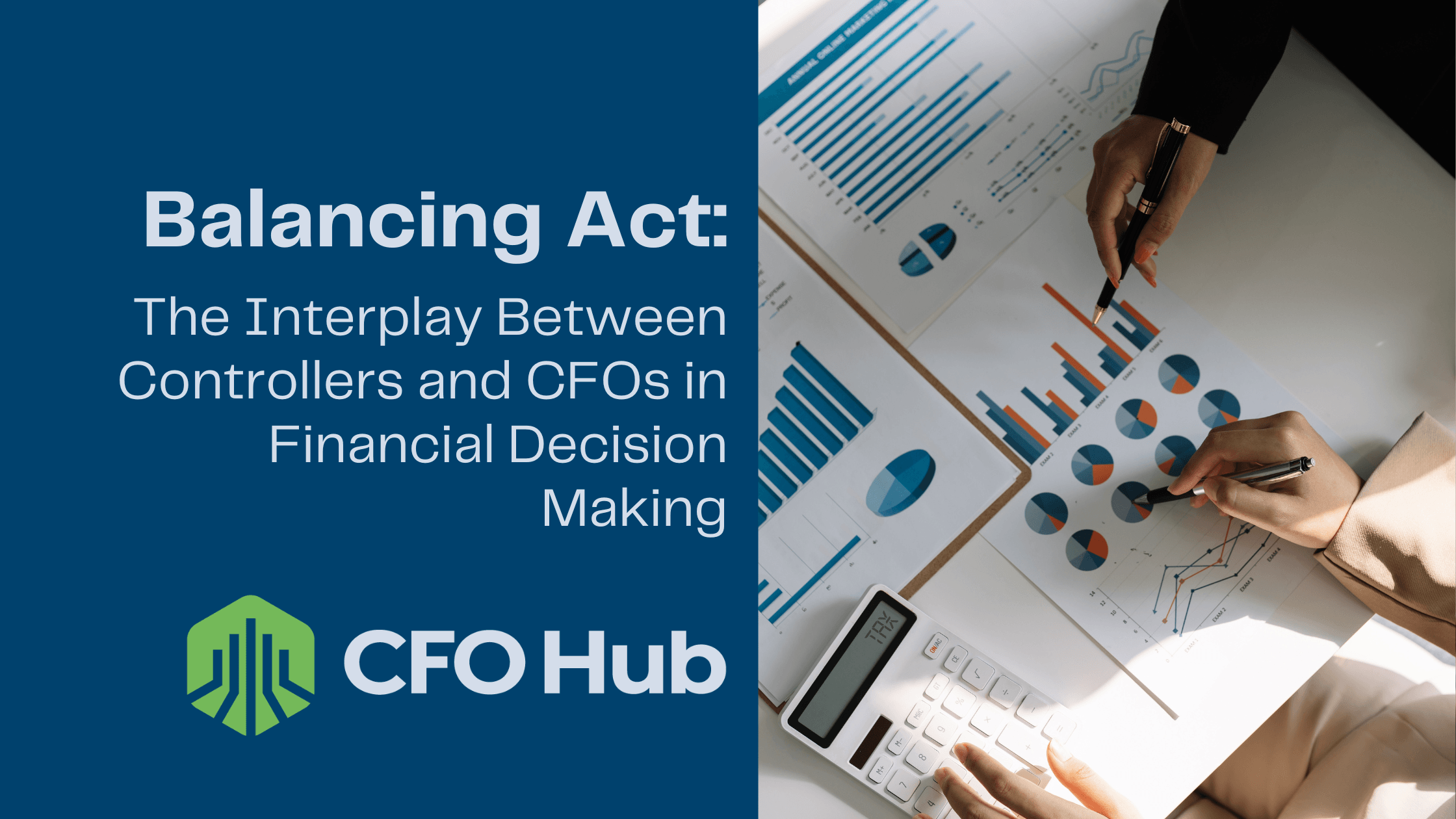Balancing Act: The Interplay Between Controllers and CFOs in Financial Decision Making
Any mid-sized to large organization may have several financial managers in its ranks to cater to different aspects of the organization. Some of these managers are financial controllers and CFOs. These financial teams have a lot in common, but they also have significant differences that play a role in decision-making. Smaller firms go for one or the other to manage their labor costs; others outsource the services.
It is important that organizations understand the roles of each so that they know how they play in the decision-making matrix. This article explores each role and how they fit with each other.
Who is a Financial Controller?
A financial controller is an account. In this case, the lead accountant’s role is similar to that of a comptroller in non-profit organizations. The role is responsible for maintaining a department that maintains the books of account and runs the daily activities of the accounting function. The senior major reports to the CEO or CFO and supervises both bookkeepers and staff accountants.
Who is a CFO?
A CFO is the management-level financial executive of an organization. The role is tasked with making strategic financial decisions for the organization—the office checks for market conditions, the company’s equity structure, and competitive analysis. CFOs report to the CEO and are usually the financial advisors to the board of management. This broad view means that CFOs are more focused on the macro environment and less on localized financial decisions.
How Do Both Roles Play in Decision-Making
Controllers Manage Accounting, While CFOs Manage Finance
Financial controllers are concerned with accounting and tax auditing. They are CPAs or have similar professional qualifications. These professionals provide the organization with its current financial status and a projection of its near future. This is vital for overall growth planning.
On the other hand, CFOs operate in broader disciplines, such as capital markets, financial planning, and investing. They are not always CPAs; they are more business managers with financial backgrounds. They use the information they get from the financial controllers to determine the growth and future prospects of the organization.
Tactical and Strategic Decisions
Financial controllers are tactical decision-makers. They adhere to financial procedures and are more focused on accuracy. They provide and work on monthly accounting, payroll maintenance. When the organization needs to make tactical financial decisions, these are the managers to lead the way.
On the other hand, CFOs are strategic and more concerned with the direction the organization is headed. They use the tactical information to determine strategic opportunities in the short, medium, and long term.
Internal Controls and Market Trends
Financial controllers are tasked with safeguarding, monitoring, and putting in place internal controls to lock down loopholes that may lead to financial hemorrhage. They are in the best position to give a report on the internal workflows and processes. Companies also task them with maintaining generally accepted accounting principles and ensuring all tax rules are met.
CFOs look at partnerships, strategic mergers and buyouts, and other investment opportunities that appear in the market. They evaluate the current financial standing of the firm from the controllers’ reports to determine the moves the organization should take in the marketplace.
Both CFOs and controllers play a vital role in ensuring that organizations remain sound financially and make decisions that are both tactical and strategic. The controller looks at the internal systems and procedures, while the CFO looks at the external and macro markets. The former helps determine the financial standing of the organization so that the latter can make qualified strategic decisions.
CFO Hub offers accounting and finance assistance to organizations of all levels. We offer outsourced controller and CFO services to help optimize your financials and make out actionable intelligence from your data. Contact us today for assistance.

